Featured
 The U.S. Thinks ‘It Can’t Happen Here.’ It Already Has. By Jamelle Bouie / NYT
The U.S. Thinks ‘It Can’t Happen Here.’ It Already Has. By Jamelle Bouie / NYT
It is better, in the U.S. context at least, to think of authoritarianism as something like a contradiction nestled within the American democratic tradition. It is part of the whole, a reflection of the fact that American notions of freedom and liberty are deeply informed by both the experience of slaveholding and the drive to seize land and expel its previous inhabitants.
As the historian Edmund Morgan once wrote of the Virginians who helped lead the fight for Anglo-American independence, “The presence of men and women who were, in law at least, almost totally subject to the will of other men gave to those in control of them an immediate experience of what it could mean to be at the mercy of a tyrant.” Virginians, he continued, “may have had a special appreciation of the freedom dear to republicans, because they saw every day what life without it could be like.” Read more
Political / Social
 As midterms near, immigrants and voters of color being targeted with rampant misinformation. By Areeba Shah / Salon
As midterms near, immigrants and voters of color being targeted with rampant misinformation. By Areeba Shah / Salon
Voting rights groups fight back against widespread misinformation aimed at foreign-language voters and others
When a high demand for information about a topic isn’t met with a supply of accurate and reliable information, the result is what the Brennan Center terms an “information gap,” which can allow misinformation and blatant propaganda to emerge and spread. Much of this is happening in communities where English isn’t the primary language, advocates say, and different communities are susceptible to different types of misinformation that specifically target platforms they are most likely to interact with. Read more
Related: Attack Ads Are Darkening the Skin Tone of Black Candidates. By Bill Lueders / The Bulwark
 Abrams and Warnock pursue very different strategies in key Georgia races. By Sahil Kapur / NBC News
Abrams and Warnock pursue very different strategies in key Georgia races. By Sahil Kapur / NBC News
Stacey Abrams’ strategy relies on inspiring and turning out Democrats with bold plans. Raphael Warnock is emphasizing bipartisan issues to court Republicans and independents.
A new spot cut by Stacey Abrams, the Democratic nominee for governor, presents her as a “math whiz” with bold progressive ideas to raise teacher pay, extend child care and fund preschool. Another ad vows to put Georgia’s surplus toward fresh stimulus checks for the middle class and to expand affordable housing. Meanwhile, Sen. Raphael Warnock is running as an independent-minded legislator and highlighting bipartisan pursuits like capping insulin costs as he seeks a full six-year term. One ad touts his work with Republican Sen. Tommy Tuberville of Alabama to protect peanut farmers. Another features testimonials from GOP-leaning voters who say they’re supporting Warnock this fall. Read more
 Florida Senate debate: Takeaways from Marco Rubio and Val Demings. By Zac Anderson / Tallahassee Democrat
Florida Senate debate: Takeaways from Marco Rubio and Val Demings. By Zac Anderson / Tallahassee Democrat
The word “liar” was tossed out a few times, along with plenty of other tough language as Republican U.S. Sen. Marco Rubio and his Democratic opponent, U.S. Rep. Val Demings, met on the debate stage in a heated matchup Tuesday night on the campus of Palm Beach State College. Demings often was on the offensive as she tries to unseat a two-term incumbent and shakeup a race where polls show her lagging, in a state that increasingly has trended red. A practiced debater, Rubio deflected on some hot-button issues, such as abortion, as he sought to avoid major missteps in the home stretch. Here are five takeaways from the debate. Read more
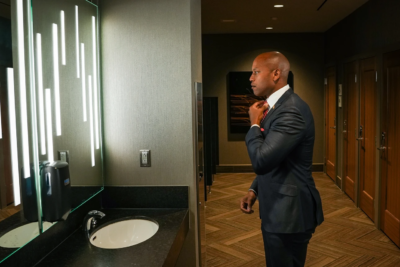 This Black governor-in-waiting is facing Obama-level expectations. By Brakkton Booker / Politico
This Black governor-in-waiting is facing Obama-level expectations. By Brakkton Booker / Politico
Wes Moore does acknowledge the history he’s attempting to make — but is quick to pivot to policies he hopes would define his tenure as Maryland’s chief executive. Bryan Woolston/AP Photo
Wes Moore is on the rise — and some of the Democrat’s close allies already have their sights on more than just the Maryland governor’s mansion. Moore is poised to become just the third elected Black governor in U.S. history if he holds onto a wide polling lead in Maryland. He may well be the nation’s only Black chief executive in the country next year. Read more
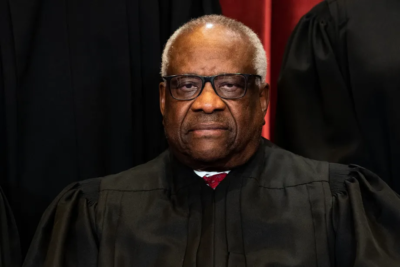 What does Supreme Court Justice Clarence Thomas really believe? By Sean Illing / Vox
What does Supreme Court Justice Clarence Thomas really believe? By Sean Illing / Vox
How “the sense of defeat over the Black freedom struggle” shaped the Supreme Court justice’s thinking.
From the bench, Thomas’s hardline positions have bedeviled the left and made him a hero of the American right. Which means lots of people have strong feelings about him. But the strange thing about Thomas is that he seems to be mostly misunderstood by both his supporters and detractors — at least according to political theorist Corey Robin. I invited Robin to join me for an episode of Vox Conversations. (Our discussion aired last month.) Robin’s a professor at Brooklyn College and he wrote a fascinating book on the life and thought of Thomas back in 2019 called The Enigma of Clarence Thomas. This past summer, he wrote a New Yorker piece on Thomas in the aftermath of the Supreme Court’s decision to overturn Roe v. Wade. Read more
Related: Supreme Court rejects appeal from Dylann Roof. CBS News
 Redistricting fight over who is Black in Louisiana voting map. By Hansi Lo Wang / NPR
Redistricting fight over who is Black in Louisiana voting map. By Hansi Lo Wang / NPR
Who counts as Black?
The thorny question has quietly found its way before the U.S. Supreme Court again, ensnared in a major legal battle over the Voting Rights Act that could further gut the landmark law and make it harder to protect the political power of voters of color. The battle is playing out over new maps of congressional voting districts created by Republican-led legislatures in Alabama and Louisiana after the 2020 census. The fate of the maps rests on how the Supreme Court rules first in the case out of Alabama — Merrill v. Milligan — which the high court heard this month and may set a precedent for lawsuits about Section 2 of the Voting Rights Act. Read more
Related: EPA Calls Out Environmental Racism in Louisiana’s Cancer Alley. By Lisa Song / ProPublica
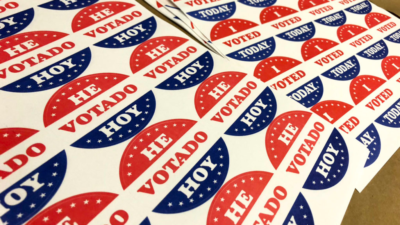 The Dangers of Ignoring the Latino Vote This November. By Bill Gallegos / The Nation
The Dangers of Ignoring the Latino Vote This November. By Bill Gallegos / The Nation
Pretending we only exist in election years is a losing strategy for the left.
The Latino population in this country is most often out of sight and out of mind, even in the media of the US left, which mostly continues to frame US politics within a strictly “Black-white “framework. There is, however, a new exception to the ghosting of Latinos in the broader US society. And that has to do with the growing numbers and potential power of the Latino electorate. When important elections roll around, lo and behold, we are suddenly found! Since the 2020 elections, there has been a veritable deluge of articles about Latino voters. Read more
 Does campus diversity justify affirmative action? Our study says yes. By Adam Chilton Justin Driver, Jonathan Masur and Kyle Rozema / Wash Post
Does campus diversity justify affirmative action? Our study says yes. By Adam Chilton Justin Driver, Jonathan Masur and Kyle Rozema / Wash Post
 Congress investigates Jackson water crisis and Mississippi’s use of federal funds. By Bracey Harris / NBC News
Congress investigates Jackson water crisis and Mississippi’s use of federal funds. By Bracey Harris / NBC News
Two members of Congress asked Mississippi’s governor for details about the racial makeup of communities that received federal funds to improve their water systems.
Two congressional committees want Mississippi Gov. Tate Reeves to explain how the country’s poorest state is spending hundreds of millions of dollars in federal funds as its predominantly Black capital city struggles with crumbling water infrastructure. Reps. Carolyn Maloney, D-N.Y., and Bennie Thompson, D-Miss., sent the request in a letter to Reeves on Monday as part of an investigation by the Homeland Security and the Oversight and Reform committees into a safe drinking water crisis that at its height left thousands of Jackson residents without running water this summer. Read more
 Babies born to Black mothers die far more often than those with white mothers. By Aria Bendix / NBC News
Babies born to Black mothers die far more often than those with white mothers. By Aria Bendix / NBC News
Death rates were four times higher for infants born to Black mothers who conceived through technologies like IVF.
The findings showed that death rates were four times higher among newborns up to 28 days old who were born to Black mothers who used fertility technologies involving eggs or embryos. That death rate was 1.6% among babies born to Black mothers, compared with just 0.3% for babies born to white mothers. Read more
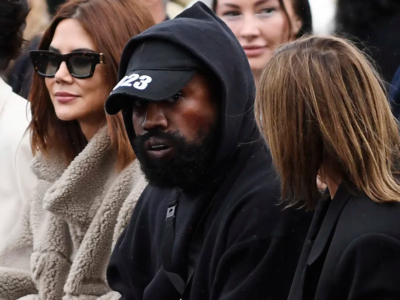 George Floyd’s family to file $250 million lawsuit against Ye, a.k.a. Kanye West. By Matt Adams / NPR
George Floyd’s family to file $250 million lawsuit against Ye, a.k.a. Kanye West. By Matt Adams / NPR
The family of George Floyd announced Tuesday that they will file a $250 million lawsuit against Ye, the rapper formerly known as Kanye West, following comments he made about Floyd’s death on the podcast Drink Champs. Hennepin County Medical Examiner’s Office ruled that George Floyd’s death was a homicide, caused by Derek Chauvin kneeling on Floyd’s neck for over eight minutes. But Ye — who was a guest on last weekend’s episode of the podcast hosted by rapper N.O.R.E and DJ EFN — put forth the idea that it wasn’t Chauvin who caused Floyd’s death, but that he died from fentanyl use. Read more
Related: Kanye West’s antisemitism has no deeper meaning. Stop looking. By Eugene Robinson / Wash Post
Related: ‘White Lives Matter’ Kanye is a provocateur who dismisses Black pain. By Channing Hargrove /Andscape
 Anna May Wong will become the first Asian American on U.S. coins. By Ashley Ahn / NPR
Anna May Wong will become the first Asian American on U.S. coins. By Ashley Ahn / NPR
The U.S. Mint will begin shipping coins featuring actress Anna May Wong on Monday, the first U.S. currency to feature an Asian American.
Dubbed Hollywood’s first Asian American movie star, Wong championed the need for more representation and less stereotypical roles for Asian Americans on screen. Wong, who died in 1961, struggled to land roles in Hollywood in the early 20th century, a time of “yellowface,” when white people wore makeup and clothes to take on Asian roles, and anti-miscegenation laws, which criminalized interracial relationships. Read more
Ethics / Morality / Religion
 Fewer than half of Americans may be Christian by 2070, according to new projections. By Bob Smietana / RNS
Fewer than half of Americans may be Christian by 2070, according to new projections. By Bob Smietana / RNS
A new report projects Americans’ future — a future where Christianity, though diminished, persists, while non-Christian faiths grow amid rising secularization.
By 2070, that may no longer be the case. If current trends continue, Christians could make up less than half of the population — and as little as a third— in 50 years. Meanwhile, the so-called nones — or the religiously unaffiliated — could make up close to half of the population. And the percentage of Americans who identify as Muslims, Jews, Hindus, Buddhists and other non-Christian faiths could double. Read more
 Catholics have a duty to combat voter suppression, webinar participants say. By Aleja Hertzler-McCain / NCR
Catholics have a duty to combat voter suppression, webinar participants say. By Aleja Hertzler-McCain / NCR
Panelists participate in an Oct. 14 webinar organized by Faith in Public Life titled “Protecting Democracy & Voting Rights: A Conversation With Catholic Activists.” (NCR screenshot/YouTube)
The webinar built on a statement that Faith in Public Life released Sept. 27 in which Catholic leaders wrote, “Voter suppression is a sin and silence is complicity.” Jeanné Lewis, interim CEO at Faith in Public Life, shared in the webinar that her grandfather worked with other Black Catholics at his parish to organize against an unconstitutional literacy test that they faced in New Orleans, Louisiana. “In my lifetime, I didn’t think I’d have to face the level of violence and intimidation and a breakdown in the rule of law that my grandparents did more than 50 years ago, yet here we are,” Lewis said. She said that Faith in Public Life is building infrastructure to prevent political violence and counter misinformation. Read more
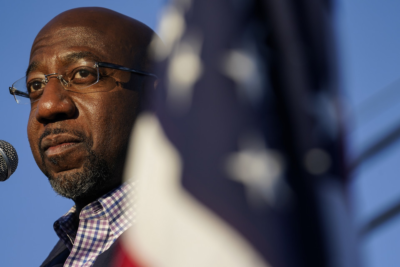 How Warnock’s church highlights the key to Georgia’s Senate race. By Eugene Daniels / Politico
How Warnock’s church highlights the key to Georgia’s Senate race. By Eugene Daniels / Politico
The campaign is focusing on Herschel Walker’s foibles, but strategists note that Warnock also has to “requalify” himself with Black voters
Walking into Ebenezer Baptist Church is like joining the reunion of a Black Southern family — and exactly the type of people Sen. Raphael Warnock needs to mobilize in his race for reelection in Georgia. Refrains of, “How you doing, baby?” echo throughout the sanctuary of the historic, onetime spiritual home of Rev. Martin Luther King, Jr., as church members mill around. A sea of Sunday best stands out: bright colored-blazers, tailored suits and large, intricate church hats bobbing among wooden pews with crosses etched into the sides. Read more
 The Growing Religious Alliance to Ban LGBTQ Books. By David Masciotra / The New Republic
The Growing Religious Alliance to Ban LGBTQ Books. By David Masciotra / The New Republic
Conservative Muslims in Dearborn, Michigan, have joined forces with right-wing Christians in a bigoted crusade against gay and trans literature in public schools.
Brian Stone, an LGBTQ activist in Dearborn, Michigan, put an emergency contact card in his wallet, wrote a will, and told his partner he loved him—then set off for a local school board meeting last week. He was prepared to receive death threats, just as hundreds of school board officials and librarians have across the country, or even to be assaulted—a reasonable fear given that anti-LGBTQ hate crimes have steadily increased for years, with 2021 being the deadliest on record for targeted murders of gay and trans Americans. Read more
Historical / Cultural
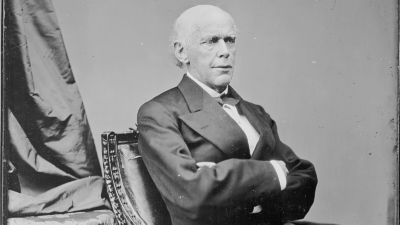 What an Antislavery Politician Missed and Why It Still Matters. By Jamelle Bouie / NYT
What an Antislavery Politician Missed and Why It Still Matters. By Jamelle Bouie / NYT
This week, I finished reading Walter Stahr’s recent biography of Salmon P. Chase, the Ohio politician and statesman who helped shape American politics in the middle of the 19th century as much as any single man. In particular, Chase stood as one of the exemplars of what has come to be called political antislavery, otherwise known as the effort to end or restrict slavery through mainstream politics rather than social reform or moral suasion. Read more
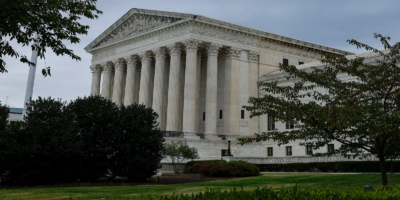 Famed Brown v. Board ruling debated in Supreme Court admissions cases. By John Fritze / USA Today
Famed Brown v. Board ruling debated in Supreme Court admissions cases. By John Fritze / USA Today
The landmark 1954 decision held that racial segregation in public schools was unconstitutional. Does it also stand for the principle that the Constitution requires colorblindness?
The position that prevailed in Brown, the plaintiffs told the justices in a brief that quoted from a 2007 Supreme Court opinion, was that “no state has any authority…to use race as a factor in affording educational opportunities among its citizens.” But critics say that approach turns Brown – and the 14th Amendment – on its head. Brown prohibited public schools from excluding Black children “solely on the basis of race,” they say, but it didn’t bar a university from considering race as it seeks to achieve the opposite goal: Assembling a diverse class of students that reflects the population. “No equivalence can sincerely be drawn between the segregation Brown rightly condemned and a university’s limited consideration of race…to assemble a diverse class,” Harvard told the Supreme Court in a brief this summer. Read more
 ‘Descendant’ and ‘The Rebellious Life of Mrs. Rosa Parks’ review: Two documentaries provide new windows into chapters in Black history. By Brian Lowry / CNN
‘Descendant’ and ‘The Rebellious Life of Mrs. Rosa Parks’ review: Two documentaries provide new windows into chapters in Black history. By Brian Lowry / CNN
Two powerful documentaries explore different aspects of Black history this week, in each case shedding light on misrepresented or under-covered chapters. Presented by Barack Obama’s company under its Netflix deal, “Descendant” examines the discovery of a long-sunk ship that brought enslaved Africans to Alabama, while “The Rebellious Life of Mrs. Rosa Parks” reclaims a figure whose legacy was too often characterized as the product of tired feet. “Descendant” premieres October 21 in select theaters and on Netflix. “The Rebellious Life of Mrs. Rosa Parks” premieres October 19 on Peacock. Read more
 The Legal Mind of Constance Baker Motley. By Tomiko Brown-Nagin / AAIHS
The Legal Mind of Constance Baker Motley. By Tomiko Brown-Nagin / AAIHS
Constance Motley and Randolph Rankin attending City Hall budget hearing, February 25, 1965 (Library of Congress)
The feverish preparation culminated in a December 1953 oral argument before the U.S. Supreme Court. [Constance] Motley looked on with pride as her colleagues argued, in turn, that the “separate but equal” principle should be overturned. The Court must reject segregation, Marshall argued, because the only thing that explained it was whites’ “determination that the people who were formerly in slavery . . . shall be kept as near that state as possible.” That rationale offended the Constitution. In the spring of the following year, the Court issued a unanimous decision in Brown v. Board of Education. Constance Baker Motley had played an integral role on the legal team responsible for the landmark victory. Read more
 Americans living in Ghana explain why they made the move to Africa. By Pam Rentz / Andscape
Americans living in Ghana explain why they made the move to Africa. By Pam Rentz / Andscape
Black U.S. citizens migrate for reasons such as safety and racial equality: ‘At the end of the day, I am American. But I found that this is better than being in the U.S.’
The concept of permanently living abroad may be outlandish to some people, but for Ashley Milton, the question wasn’t about if she would reinvent her life on the continent of Africa, but when. “Once I returned to America [from Africa] after my first birthright [experience], I had caught ‘the bug,’ ” Milton said. “I knew from that moment that I always wanted to make sure that this connection remained prominent in my life.” Milton is one of approximately 3,000 expatriates who currently live in Ghana, Americans who have chosen to migrate to the country for reasons ranging from safety to racial equity to business opportunities. The decision comes with pros and cons for any American looking to make the move. Read more
 A Pioneering Black Ballerina’s Life Story Comes to the Stage. By Kayla Stewart / NYT
A Pioneering Black Ballerina’s Life Story Comes to the Stage. By Kayla Stewart / NYT
Lauren Anderson, whose story is told in “Plumshuga” in Houston, talks about the show, her personal battles and storied career: “I got to the mountaintop.”
When Lauren Anderson was promoted to principal dancer at Houston Ballet in 1990, she made history as one of the first Black women to be a principal at a major American ballet company. “My goal was just to get in the company,” Anderson, 57, said in a recent interview. “My dream was to be a soloist. I didn’t expect to go past soloist.” But she did, dancing the lead in ballets like “Cleopatra” and collecting accolades. Read more
Sports
 How Deion Sanders is changing the future of college football at Jackson State. By Jon Wertheim
How Deion Sanders is changing the future of college football at Jackson State. By Jon Wertheim
His personality as flamboyant as his football talent, Deion Sanders had two nicknames during his hall of fame NFL career: he was “Neon Deion” and “Prime Time.” But for his latest gig, Sanders high stepped it to Mississippi and, at age 55, he is now the head football coach at Jackson State, a historically Black university or HBCU. Sanders’ salary of $500,000 is less than 5% of what, one state over, Alabama pays its coach, Nick Saban. Yet, Jackson State might be the hottest program in America, poaching talented recruits and winning games in equal measure, powered by, yes, the style, but also the substance, of the man who now calls himself Coach Prime. Read more
 Simone Biles: How the Olympic gold medalist’s life led to mentorship. By Simone Biles / USA Today
Simone Biles: How the Olympic gold medalist’s life led to mentorship. By Simone Biles / USA Today
I am so grateful for all of the support I have received throughout my journey, and it has empowered me to share my experiences so I can help be a voice for others who may be struggling.
Looking back, I think one of the most critical parts to my foster care experience was the important role adults played in my life at such a vulnerable time. The love and support I received from my parents who unselfishly adopted my sister and me when I was 6 years old changed the entire trajectory of my life. Today, I recognize just how important it is for children, particularly those who face a lot of hard things, to have a consistent, caring adult throughout their childhood. Read more
 Charles Barkley signs ‘life-altering deal’ to stay with TNT’s NBA show. By Des Bieler / Wash Post
Charles Barkley signs ‘life-altering deal’ to stay with TNT’s NBA show. By Des Bieler / Wash Post
As recently as February, Charles Barkley was reiterating — in typically vivid terms — his preference to retire at the end of his contract with TNT and its parent company.
As usual, and to the delight of countless NBA fans, it appears he’s not going anywhere anytime soon. Warner Bros. Discovery Sports, the conglomerate formerly known as Turner Sports, announced Monday that Barkley and his three cohorts on TNT’s much-loved “Inside the NBA” studio show have reached agreements to “remain together for many years to come.” Read more
Site Information
Articles appearing in the Digest are archived on our home page. And at the top of this page register your email to receive notification of new editions of Race Inquiry Digest.
Click here for earlier Digests. The site is searchable by name or topic. See “search” at the top of this page.
About Race Inquiry and Race Inquiry Digest. The Digest is published on Mondays and Thursdays.
Use the customized buttons below to share the Digest in an email, or post to your Facebook, Linkedin or Twitter accounts.